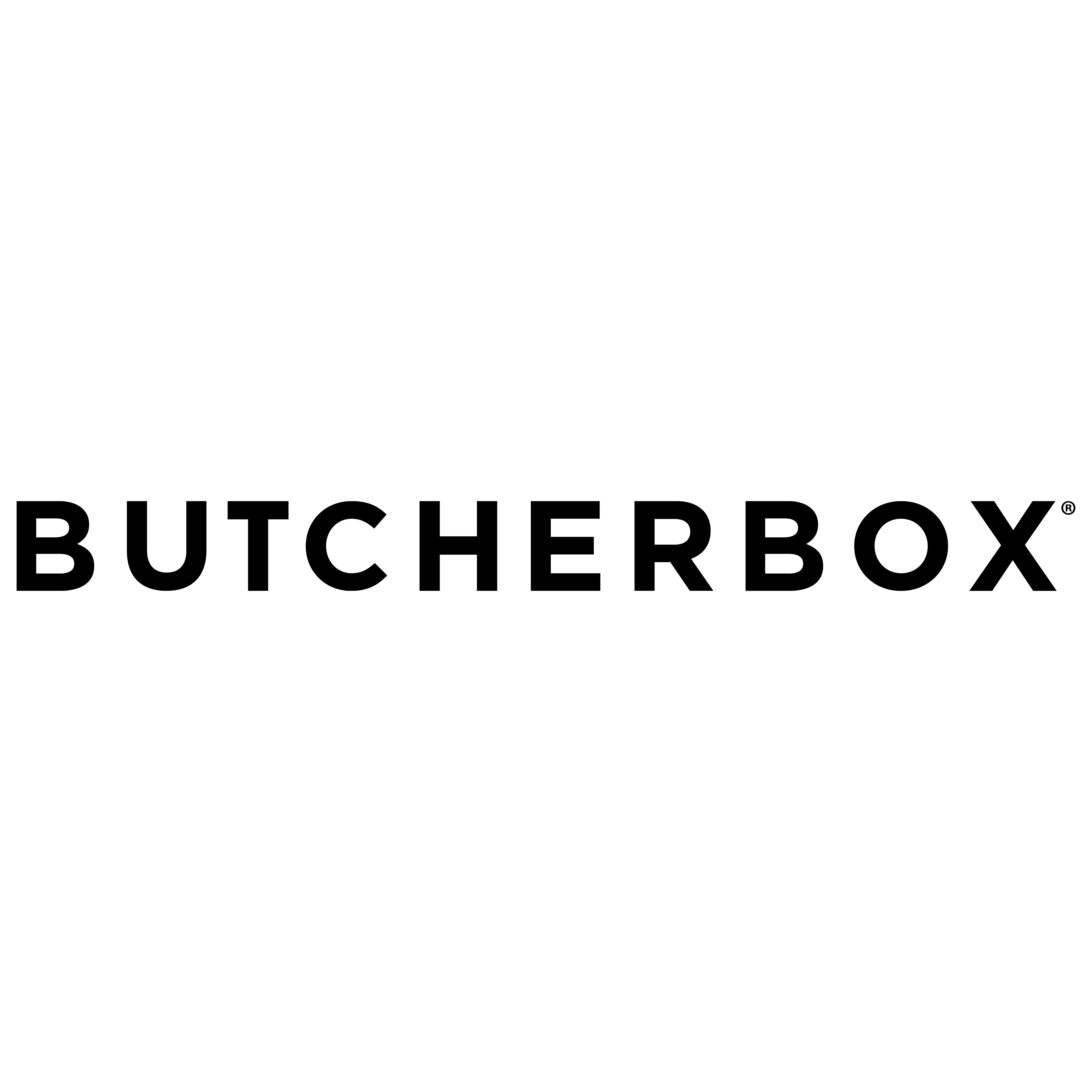

ButcherBox

Massachusetts, United States
November 2020
Food products
Wholesale/Retail
United States
Founded in 2015, ButcherBox began with a simple mission to make high-quality meat more accessible to all. The company soon discovered that meant more than delivering 100% grass-fed, grass-finished beef, free-range organic chicken, pork raised crate-free, and sustainably sourced seafood, it meant rethinking the country’s food system. ButcherBox is in pursuit of a better way, one that’s focused on animal welfare, supporting farmers, treating the planet with respect and upholding diversity, equity, and inclusion across its business. ButcherBox cares about the lives of animals and are proud to partner with folks who raise animals and harvest seafood with safety, sustainability, natural tendencies, and comfort in mind. Farmers are the people who harness the power of nature—they should earn fair and predictable living wages. They are working to support sustainable fishing and agricultural practices, improve soil health, and minimize our carbon footprint. Their partners and their employees are one team. They believe in creating an environment where all workers are treated equitably and that their diverse identities are celebrated. They are making high-quality meat more accessible to all, raising the bar for the meat our members eat and serve the ones they love.
Overall B Impact Score
Governance 15.8
Governance evaluates a company's overall mission, engagement around its social/environmental impact, ethics, and transparency. This section also evaluates the ability of a company to protect their mission and formally consider stakeholders in decision making through their corporate structure (e.g. benefit corporation) or corporate governing documents.
What is this? A company with an Impact Business Model is intentionally designed to create a specific positive outcome for one of its stakeholders - such as workers, community, environment, or customers.
Workers 31.5
Workers evaluates a company’s contributions to its employees’ financial security, health & safety, wellness, career development, and engagement & satisfaction. In addition, this section recognizes business models designed to benefit workers, such as companies that are at least 40% owned by non-executive employees and those that have workforce development programs to support individuals with barriers to employment.
Community 20.3
Community evaluates a company’s engagement with and impact on the communities in which it operates, hires from, and sources from. Topics include diversity, equity & inclusion, economic impact, civic engagement, charitable giving, and supply chain management. In addition, this section recognizes business models that are designed to address specific community-oriented problems, such as poverty alleviation through fair trade sourcing or distribution via microenterprises, producer cooperative models, locally focused economic development, and formal charitable giving commitments.
Environment 26.4
Environment evaluates a company’s overall environmental management practices as well as its impact on the air, climate, water, land, and biodiversity. This includes the direct impact of a company’s operations and, when applicable its supply chain and distribution channels. This section also recognizes companies with environmentally innovative production processes and those that sell products or services that have a positive environmental impact. Some examples might include products and services that create renewable energy, reduce consumption or waste, conserve land or wildlife, provide less toxic alternatives to the market, or educate people about environmental problems.
What is this? A company with an Impact Business Model is intentionally designed to create a specific positive outcome for one of its stakeholders - such as workers, community, environment, or customers.
Customers 4.4
Customers evaluates a company’s stewardship of its customers through the quality of its products and services, ethical marketing, data privacy and security, and feedback channels. In addition, this section recognizes products or services that are designed to address a particular social problem for or through its customers, such as health or educational products, arts & media products, serving underserved customers/clients, and services that improve the social impact of other businesses or organizations.